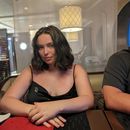CONTENT WARNING: This article mentions mental health, depression and self-harm.
Reading “I Really Didn’t Think This Through: Tales from My So-Called Adult Life” by Beth Evans evoked many difficult emotions within me because I relate to a lot of the mental health challenges detailed within it.
What affected me most was the climax of the book when Evans describes her last act of self-harm before finally getting help from her parents. I cried reading this part because I also have struggled to seek support from others in especially difficult times when I needed it the most. The strength that true vulnerability takes with those closest to you is often underestimated by many until they end up in situations that require that vulnerability to get proper help.
What I think mostly makes this vulnerability so hard is that we often feel alone in our experiences. I don’t believe that people could understand or even relate to my experiences because they feel so uniquely shameful, embarrassing, or weird. This can be particularly true with mental health symptoms that are more stigmatized, such as self-harm.
I often find that when I do get the guts to share what’s going on in my head and reach out to others for support, we often have much more in common than I thought. This common ground serves not only to help each other by sharing practical resources and tips but to normalize our experiences which can be the biggest help of all.
In reaching out in these ways and even sharing empowering and emotional stories about doing so, like this author, we can further destigmatize mental health and slowly break down more of the barriers people feel to doing so for themselves.
In this way, not only is reaching out for help a way to empower me but it is also a selfless act that makes it easier for others to do the same.
Evans also normalizes mental health in other ways by sharing many other personal experiences. She talks about experiences with OCD, being misdiagnosed as bipolar, and different ways her anxiety and depression affect her.
She describes how she felt her first-ever diagnosis as bipolar did not fit her. She found the medication she was put on for it was not at all helpful and actually hindered her ability to function. She later consulted another doctor and they diagnosed her not as bipolar but as having severe depression and anxiety.
I’ve also struggled with understanding how to define my mental health in the context of differing opinions from medical professionals. While some symptoms may fall under one umbrella, often others fall under another or many more. It can be hard to reach concrete conclusions about someone’s mental health even for experts like psychiatrists, medical doctors, and psychologists. Empowering yourself to trust your own experiences as well as doctors can be a very constructive experience for many.
She also describes how certain stereotypes about mental health conditions are extremely detrimental. For her, she found that many people assumed her OCD meant she enjoyed colour coding or other relatively harmless things. OCD for her was debilitating and interfered with her ability to engage in many areas of life, including being unable to go into public bathrooms. People not taking her seriously and dismissing her mental health concerns took a toll on her, as it made her feel even more abnormal and uncomfortable.
She recounts the ways she tried to expose herself to public bathrooms to face this fear and how a duo of women made fun of her for it. She had entered one stall and quickly exited as the lack of cleanliness was triggering her OCD, and one of the women who saw this said, “What’s wrong with her? That stall looks fine.” This led her to hide in the bathroom stall and cry.
This is a concrete example of how a lack of awareness about mental health issues can further stigmatize those who struggle with OCD or other similar conditions. This can be extremely discouraging, as it was for the author.
Evans also shares her struggles with anxious feelings surrounding progressing in life compared to her peers. This can be especially hard for people who struggle with their mental health as there can be extra challenges for them to accomplish certain things, like graduating from school or securing a job.
I have found that this type of comparison, whether professional or personal, can be very discouraging. Especially as a student, there is a lot of pressure to make progress not only in school but also in your career. All of these expectations can often feel overwhelming and unconstructive in a lot of ways, even for people who don’t tend to have mental health issues.
She mentions that it’s also important not to set specific timelines for your life because that can come with a lot of expectations and pressure. I have found this to be true because life almost never goes as planned and what is more important to learn is resilience and adaptability instead of trying to stick to a rigid path that we think will save us from pain and suffering.
This book highlights that though struggling with your mental health often creates many challenges, destigmatizing these experiences helps others to seek help and also understand the importance of doing so. Though this book is a great read simply because it helps to destigmatize, it will be especially helpful for those seeking to understand mental health struggles better and wanting a relatable book about mental health. It also highlights issues that may affect everyone to some degree, regardless of mental health status.


